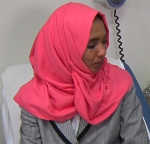Malta
Published on Fri, 2017-11-03 12:27
The lack of any substantive cohesion in Malta between a number of policies, such as education or health, with sustainability is a worrying factor, according to the Maltese Social Watch report. The general absence of statistical data, particularly of disaggregated data by various social and economic criteria, resulting from a lack of collection or from the prevalent praxis of not making it public makes the reporting difficult. Yet, there is an obvious lack of coherent and comprehensive approach to the legal and policy framework relating to the SDGs. This also belies a weak vision both on the action required at a national level and in terms of Malta’s role within the international community and its contribution (despite it being a small country) at the global level. |
Published on Fri, 2016-06-10 17:26
Malta will hold the Presidency of the European Union in the first half of 2017 and it should practice what it preaches, argues the Maltese NGO Kopin, "by ending European agricultural subsidies and other unjust practices that are harming and keeping poor undeveloped countries from reaching their potential". Justice and dignity for Maltese citizens cannot be separated from that of all citizens around the world and therefore the role of Malta as tax haven should be revised, since "tax evasion and money laundering are two major causes of global poverty and injustice". Further, the Mediterranean island should do more towards the integration of migrants, combatting xenophobia and "putting special emphasis on the rights of children and youth who are migrating, irrespective of their reasons to move". |
|
Malta participated as a member of the European Union in the process of formation of the 2030 Agenda; in September 2015 the country became a signatory to the Agenda and its 17 Sustainable Development Goals (SDGs). This means that Malta must keep its promises to implement these Goals, focused on eradicating poverty, ensuring decent work for all, achieving sustainable development, and making sure that no one is left behind. This report investigates Malta’s efforts towards achieving the 2030 Agenda and some of its key goals since the implementation period began in January 2016. It also investigates issues related to development more broadly and includes recommendations with a view to better realizing the SDGs. Education for all, while not part of this report, is also essential to allow people in poverty to be dignified agents of their own destiny and participate in advancing the 2030 Agenda.
|
| Published on Mon, 2013-04-08 00:00 |
Published on Thu, 2013-03-14 22:09
Malta, like all New Member States of the European Union, pledged to reach a level of official development assistance (ODA) of 0.17% of its gross national income (GNI) by 2010 and to increase it to 0.33% by 2015. Does Malta keep its promises to eradicate poverty in the world? Civil society organizations have expressed their concern given that the government spends a large amount of ODA funds in the detention of irregular immigrants, many of them asylum seekers, the vulnerability of most of which is recognized through their refugee status or other forms of protection. Although the improvement in the distribution of ODA should be noted, 88% of bilateral aid is not clear. This is the reason why the government has been most criticized by NGOs in Malta and abroad. |
|
In September 2000, Malta became a signatory to the Millennium Development Goals (MDGs) and promised to contribute towards eradicating world poverty. In 2005, after entering the European Union (EU), Malta became part of the European Consensus on Development common objectives and underlying principles and the European Union’s common vision on development, setting poverty eradication as ‘the primary and overarching objective of EU development cooperation’. Like all EU New Member States (NMS), Malta promised to reach a level of official development assistance (ODA) amounting to 0.17% of its gross national income (GNI) by 2010 and to increase its ODA/GNI ratio to 0.33% by 2015. The question arises: Is Malta keeping its promises towards eradicating world poverty?
|
|
Published on Mon, 2012-03-19 08:58
In terms of gender equity Malta lags well behind the European average, and also behind the its closest neighbours in that region. |
|
In order to promote a sustainable future that meets today’s needs without compromising those of future generations, the Maltese must begin to think of themselves less as “owners” of the environment and more as its “trustees and stewards.” Citizens must realize that environmental degradation and unjust resource sharing are a result of their selfishness, indifference and complacency and become more prudent in using their limited natural resources. The process of caring for the environment should involve subsidiarity – a principle associated with the decentralization of power and the provision of an enabling environment, including material assistance to decentralized units – and translate into more effective integration and co-ordination among responsible entities.
|
SUSCRIBE TO OUR NEWSLETTER






